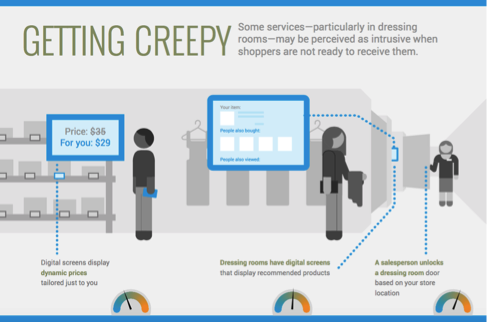The store of the future is just around the corner, and it has started to materialize today, thanks to now-ubiquitous technologies like the smartphones in our pockets and the online shopping tools we tend to take for granted, like ratings and reviews and product recommendations.
Shoppers have not only grown accustomed to these tools, they’ve gotten so used to them in their shopping experiences that it would be strange and disappointing not to have them.
So when a recent study suggested that some of the more futuristic elements of the store of the future were a bit too “creepy” for shoppers today, it’s good to remember that most consumers don’t really know how they’ll embrace a technological advancement until they get to experience it in their everyday lives.
Apple doesn’t use focus groups. If they did, they would never have built the iPhone without a physical keyboard or the MacBook without a DVD-ROM drive or the recently announced AirPod headphones without a wire. And shoppers of today are in no better position to tell retailers what technologies they’d find useful in stores of the future than Apple focus group participants would have been.
Personalized pricing dynamically served just for you. Digital dressing rooms that display complementary product recommendations, as they would in your Amazon cart. Personal greetings and targeted advertising triggered by facial recognition, all sound a little too Big Brother to most shoppers right now. But, in the future, when shoppers start to use these features or, more likely, when they experience them without having to use them at all, walking into a store where the associates don’t know their name or their preferences will feel like a letdown and as archaic as a physical keyboard on a smartphone would feel today.
The store of the future is quickly approaching, and traditional retailers and brands need to have the courage and the vision to create the experience that shoppers will love, not the experience they already love, or they’ll cede more and more of their sales to digital-savvy retailers and manufacturers who do.
Image Source: Rich Relevance


